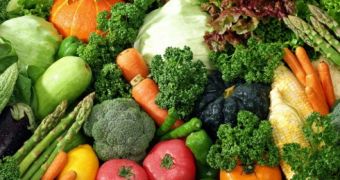Specialists in Cuba have been working on bettering local crops for quite some time now. Their end-goal is to develop vegetables that show extreme resilience to the effects of climate change, and apparently they are well on the path of reaching it.
Rumor has it that the Cuban government is well aware of how the future is likely to bring extreme weather manifestations such as storms, floods and droughts, and wants to do everything in its power to keep this developing nation afloat.
Hence their need to safeguard local crops by making them much more adaptable to environmental conditions than they presently are.
On the downside, it seems that the task they set out to perform is by no means an easy one.
Thus, as the researchers involved in this project explain, it takes about 5-15 years for most of the plant species they are interested in to build up their resistance to new environmental conditions.
Luckily for them, the Economic Commission for Latin America and the Caribbean argues that global warming will begin to somewhat affect this region around the year 2020, and that drastic climatic changes will only occur around 2050.
We can therefore speculate that, by the time global warming hits, Cuba's carrots, onions, peppers, tomatoes and the like will be pretty much equipped to deal with it.
IPS reports that Laura Muñoz explained how they are now “focused on trying to develop new varieties, with a view to climate change,” and how the qualities they are looking for in a global-warming-proof vegetable are “growth, resistance and vitality.”
As well as this, it seems that Cuba's future crops will also display more resilience to various naturally occurring pests.
Should they succeed in coming up with these up-graded vegetables, odds are that the country will not have to suffer from food shortages.

 14 DAY TRIAL //
14 DAY TRIAL //